NHS slammed for making ‘baseless’ claim trans kids may be ‘going through a phase’
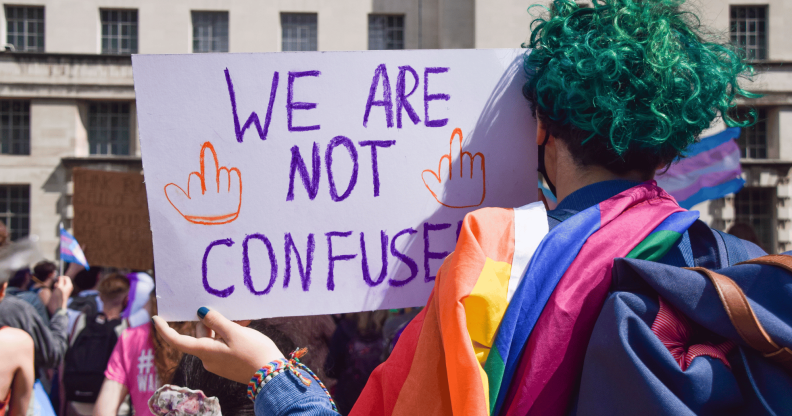
Cleo Madeleine, communications officer at Gendered Intelligence, has said that young trans people benefit from being supported in their identities. (Getty)
LGBTQ+ activists have slammed “completely baseless” NHS England guidance describing trans kids as ‘going through a phase’ as it sends the message “they don’t believe trans people exist”.
The Telegraph, The Times and the Daily Mail ran similar articles claiming the NHS advised medical professionals that trans children may be going through a short-lived ‘phase’.
The articles centred on documents released by NHS England on 20 October about its consultation on a proposed interim service specification for trans youth healthcare.
The consultation guide said it sets out how care is currently provided in England, how “interim service specification could change care and the way that services are delivered” – and how the proposed chases will be implemented.
This comes after NHS England announced it would be closing Tavistock and Portman NHS Foundation Trust’s Gender Identity Development Service (GIDS) by spring 2023, with the plan to open regional centres to help trans youth access healthcare.
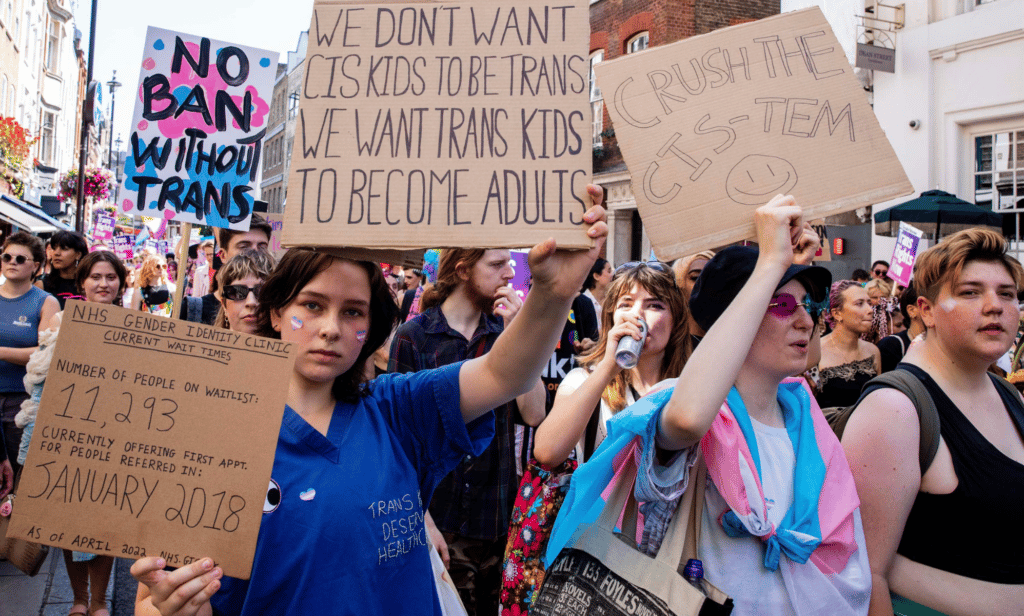
LGBTQ+ campaigners have long criticised the lengthy wait time for trans youth trying to access gender-affirming healthcare through the NHS. (Getty)
In one document, NHS England stated that doctors should be “mindful” that being trans may be a “transient phase, particularly for prepubertal children”.
An NHS spokesperson told PinkNews: “In response to interim advice from Dr Hillary Cass, the NHS is asking for views on an interim proposal for gender services which will ensure children and young people continue to receive safe, responsive care over the coming year, following the planned closure of the GIDS clinic at Tavistock and Portman NHS Foundation Trust.
“The NHS will consult on a final proposal for children’s gender services following the final report from the Cass review.”
The plans stated medical professionals should balance on a “case-by-case basis, a watchful approach overall with a more individualised approach in cases where the child’s level of global functioning may be maintained or improved through a carefully observed process of exploration of social transition”.
NHS trans guidance ‘completely baseless’
Cleo Madeleine, communications officer at Gendered Intelligence, told PinkNews that the claim that being trans is just a ‘phase’ is “completely baseless” and “diminishes the experiences of the young people and families who are desperately trying to get healthcare”.
“The vast majority of credible medical research demonstrates that young trans people benefit from being supported in their identities and that young people who do medically transition overwhelmingly persist in their identities into adulthood,” Madeleine said.
“The small minority who do detransition often do so temporarily and as a result of social pressures, like lack of home support or difficulty accessing healthcare.”
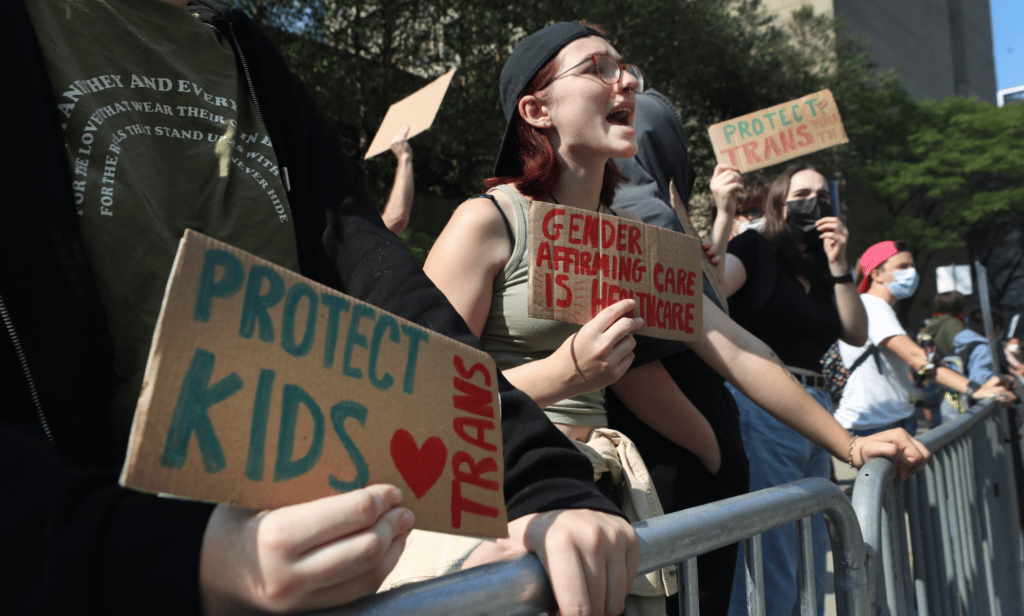
The Florida medical board committee approved a prospective rule that will ban gender-affirming healthcare for trans youth under the age of 18. (Getty)
Doctor Helen Webberley, the founder of GenderGP, slammed the NHS England guidance on gender-affirming care for trans youth as proof the UK is “taking so many backward steps instead of going forward”.
“[In the US] where there’s good, solid, gender-affirming care clinics, they’re taking massive strides forward,” Webberley said.
She continued: “And especially with WPATH 8 (Standards of Care revision 8) just being released – which couldn’t really be more affirming – and yet the NHS, I haven’t seen them quote it once, and they seem to be saying, ‘No, we don’t believe that there’s enough evidence to make these decisions.'”
Webberley said the NHS England guidance sends the message that “they don’t believe trans people exist”. Because if they did, she said they would “understand that things like puberty blockers and gender-affirming hormones were necessary”.
Prime minister Rishi Sunak and his predecessor Liz Truss have denied that trans women are women. Speaking about gender-affirming care for minors, Truss said under-18s “shouldn’t be able to make irreversible decisions about their own future”.
Boris Johnson faced backlash in March after he used a tired anti-trans dog whistle about ‘biological facts’ when speaking about the lives of trans people during a PMQs session.
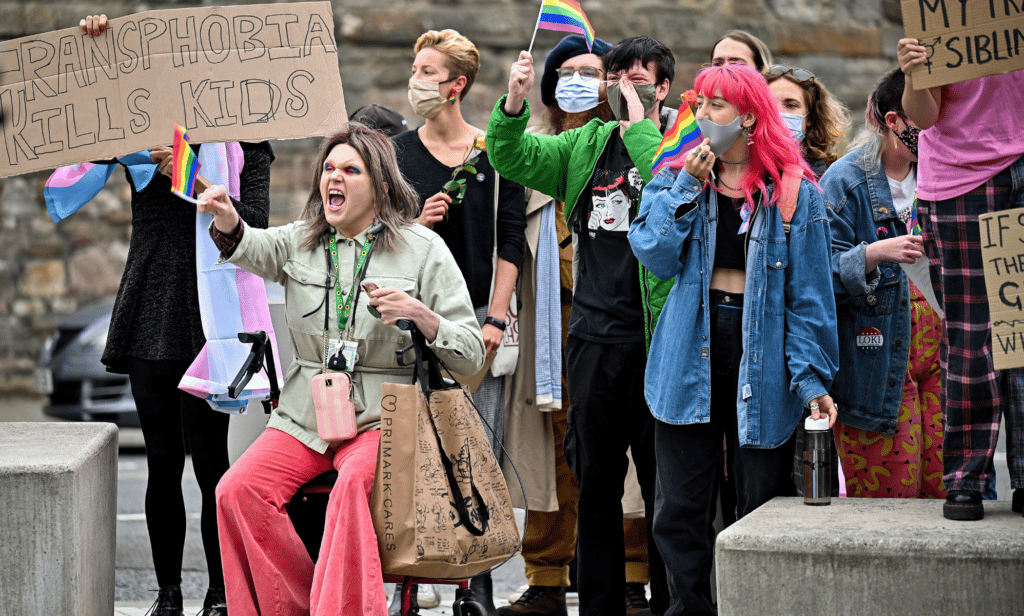
Anti-trans dog whistle claims, discrimination and lack of access to gender-affirming care can have immense negative impacts on the lives of trans youth. (Getty)
Another NHS England document, released the same day, stated the current GIDS service specification “acknowledges that social transition in pre-pubertal children is a controversial issue” and the “current evidence base is insufficient to predict the long-term outcomes of complete gender-role transition during early childhood”.
NHS England’s interim service specification is that the “clinical approach in regard to pre-pubertal children will reflect evidence that in most cases gender incongruence does not persist into adolescence”.
As such, it said the “provision of approaches for social transition should only be considered where the approach is necessary for the alleviation of, or prevention of, clinically significant distress or significant impairment in social functioning and the young person is able to fully comprehend the implications of affirming a social transition”.
Madeleine described how the documents seemed to “present being trans as a bad outcome” or as a “problem to be fixed”.
She said the guidance, including the idea that GPs should “discourage social transition outside of exceptional circumstances”, is “reminiscent of the language that was used to suppress young gay people under Section 28“.
“If these specifications do come into use we risk a situation where an NHS service intervenes in personal choices like name and gender presentation, a situation that would be uncomfortably close to conversion practices,” she said.
However, research found an overwhelming majority of children who socially transition still identify as trans years later, debunking claims that being trans is a “phase’.
Mermaids denounced the NHS England guidelines saying the young people and families that the trans youth charity works with will show “time and time again that trans people know who they are, they just need to be listened to”.
Irish campaigner Fiona Pettit O’Leary wrote on Twitter that she spoke to an NHS spokesperson about the articles and was told that the English health body had “been misquoted”. She also posted an audio recording from a phone call with a spokesperson in which she discussed The Telegraph article’s headline.
O’Leary directly asked the person on the call if NHS England did indeed say that. To which, the person on the phone call responded: “No.”
I recorded phone call with #NHS @NHSEngland spokesperson/press office. Listen to part of call admitting they were misquoted by @Telegraph @haylesdixon
This is disgraceful, harms the #Trans community. #TransRightsAreHumanRights
Listen to James below ?https://t.co/HXBadbXqma
— Fiona Pettit O’Leary ?️⚧️ (@fionapettit71) October 24, 2022
She told PinkNews that NHS England has not yet responded to her requests that they issue a public statement addressing the disinformation spread by such headlines.
O’Leary said NHS England remaining silent and “sticking their head in the sand” on such an issue directly hurts trans youth and their families negatively impacted by such hateful rhetoric.
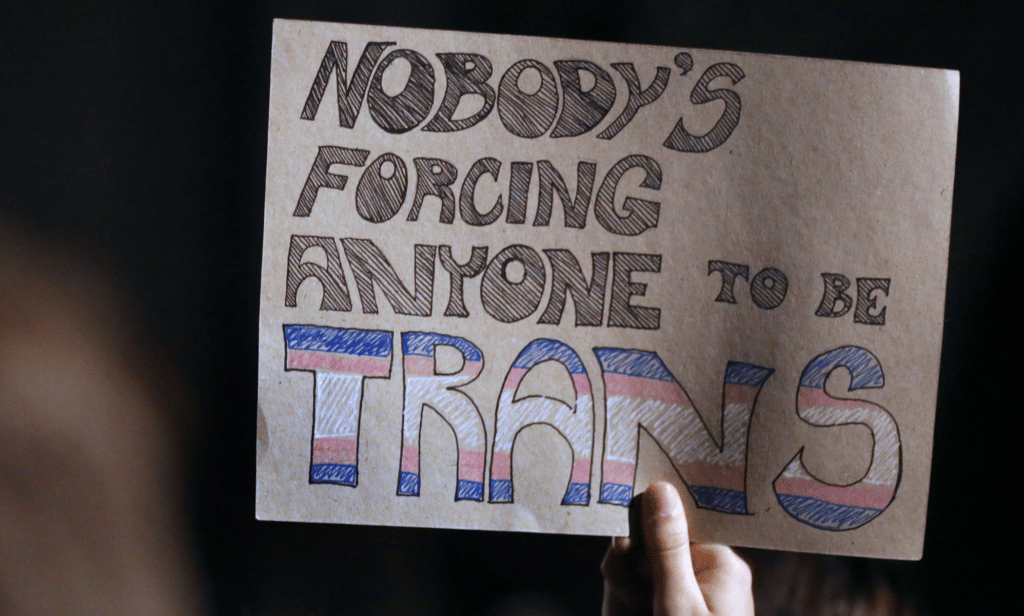
Dr Helen Webberley said the NHS England guidance is a “backward step” as it sends the message that “they don’t believe trans people exist”. (Getty)
Research by the Trevor Project – a suicide prevention and crisis intervention charity for LGBTQ+ young people – found trans and non-binary youth are at a heightened risk of attempting suicide than their cisgender queer peers.
The study of more than 33,000 LGBTQ+ youth highlighted the power that supporting and affirming a young person’s identity can have on their lives. The survey found that queer young people who felt high social support from loved ones reported attempting suicide at less than half the rate of those who felt low or moderate social support.
LGBTQ+ youth reported that the five most common ways they felt supported by their parents were: welcoming their LGBTQ friends or partners, being talked to “respectfully” about their identity, using the correct name and pronouns, supporting their gender expression and educating themselves about LGBTQ+ issues.

